The Steve Jobs Legacy: 7 Lessons Every Entrepreneur Should Learn
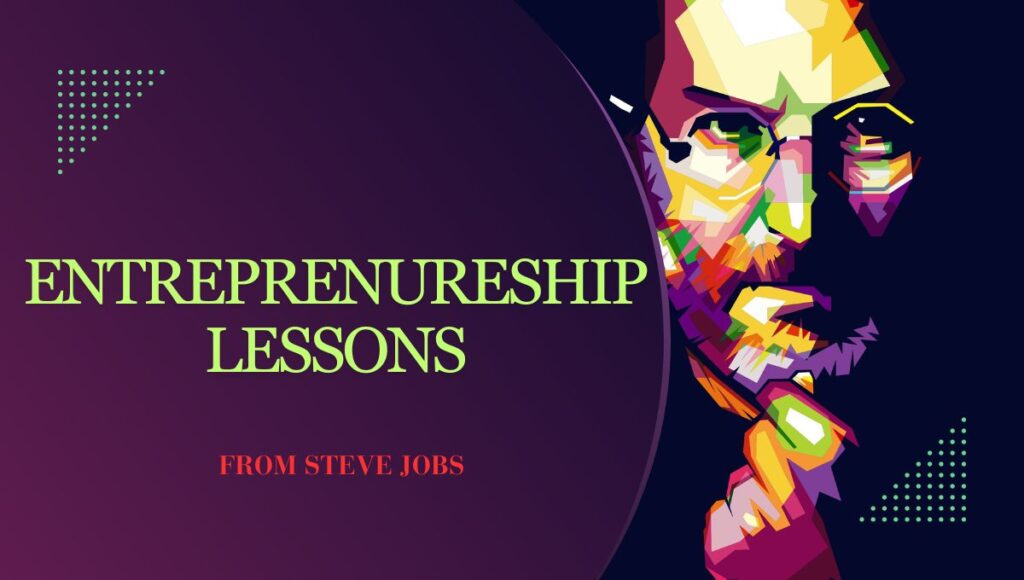
Are you an aspiring entrepreneur seeking inspiration and guidance? Look no further than the remarkable legacy of Steve Jobs. The co-founder of Apple Inc. surpassed being just a well-known figure in the tech industry. He possessed a visionary mindset, revolutionized the status quo, and made a profound impact on the global stage. In this article, we will explore seven invaluable lessons from Steve Job’s life that every entrepreneur should embrace. Prepare yourself to be filled with inspiration, motivation, and a fierce determination to conquer the world!
Steve Jobs: The Visionary Who Changed the World
In the lively city of San Francisco, a brilliant creative mind came into existence. His name was Steve Jobs. Little did the world know that this extraordinary individual would go on to reshape the technology industry and touch the lives of millions. Let’s start from the beginning and then extract those 7 lessons that every entrepreneur should learn from his story.
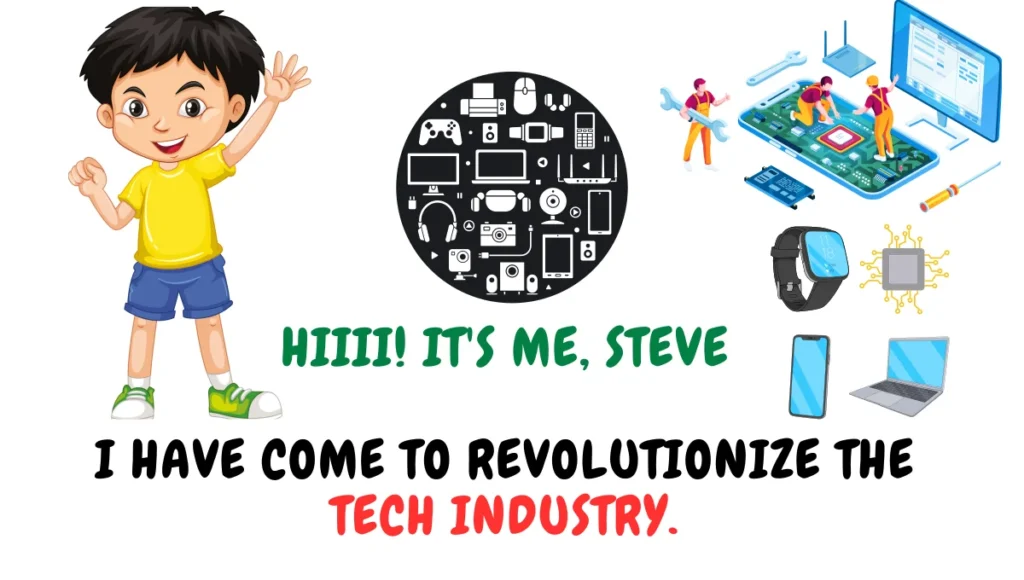

Childhood and Early Years
On February 24, 1955, in the city of San Francisco, California, Steve Jobs came into this world, he exhibited a deep curiosity and an affinity for technology. His parents, Joanne Schieble and Abdulfattah Jandali gave him up for adoption, and he was lovingly welcomed into the family of Paul and Clara Jobs. They nurtured his love for tinkering with electronics and provided him with the support to explore his passion.
College Years and Founding Apple
In 1972, Jobs enrolled at Reed College in Portland, Oregon, but he soon dropped out. However, he continued attending classes that interested him, including calligraphy, which later influenced the beautiful typography of Apple products. Jobs’ journey took a pivotal turn when he co-founded Apple Computer, Inc. in 1976 with his friend Steve Wozniak in the Jobs family garage.
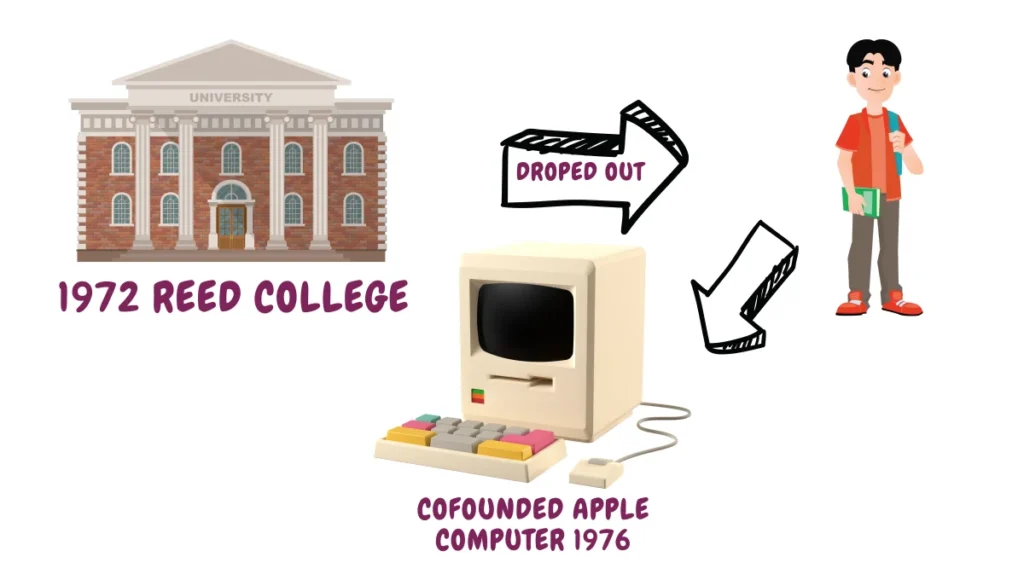
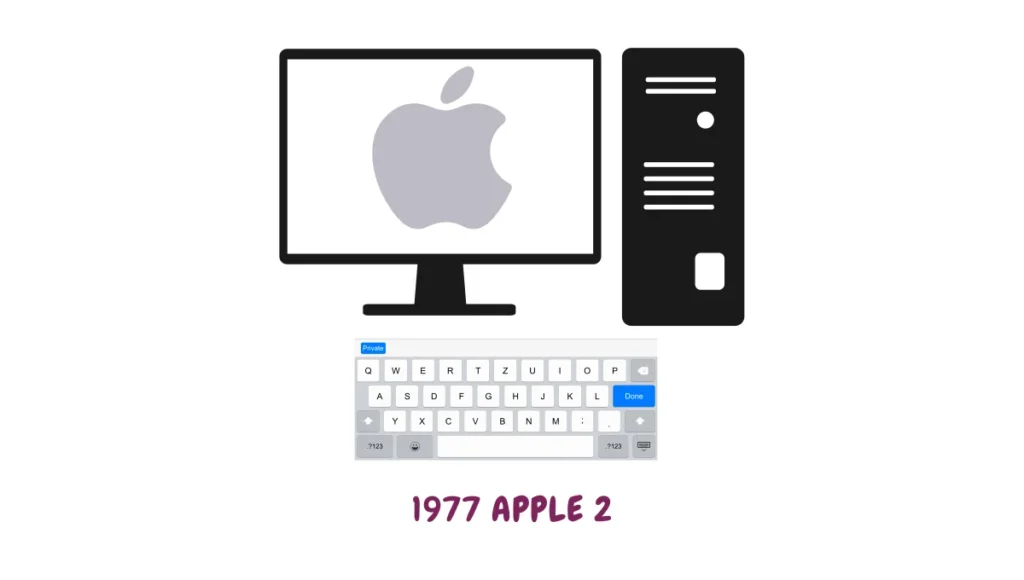
The Apple Revolution
Apple made its initial breakthrough in 1977 when it launched the Apple II, a personal computer that democratized computing capabilities, making them accessible to the general public. The commercial triumph of the Apple II positioned Apple as a prominent contender in the ever-changing landscape of the technology sector. However, it was Steve Jobs’ relentless pursuit of innovation that truly set Apple apart.
The Macintosh and Beyond
In the year 1984, Apple made a groundbreaking debut with the release of the Macintosh, a computer that revolutionized the industry with its graphical user interface and mouse functionality. This groundbreaking product made personal computing more accessible and intuitive for the average user. Jobs’ vision for the Macintosh was clear: to empower individuals with the tools to unleash their creativity. The Macintosh became an iconic symbol of Apple’s commitment to innovation and design excellence.
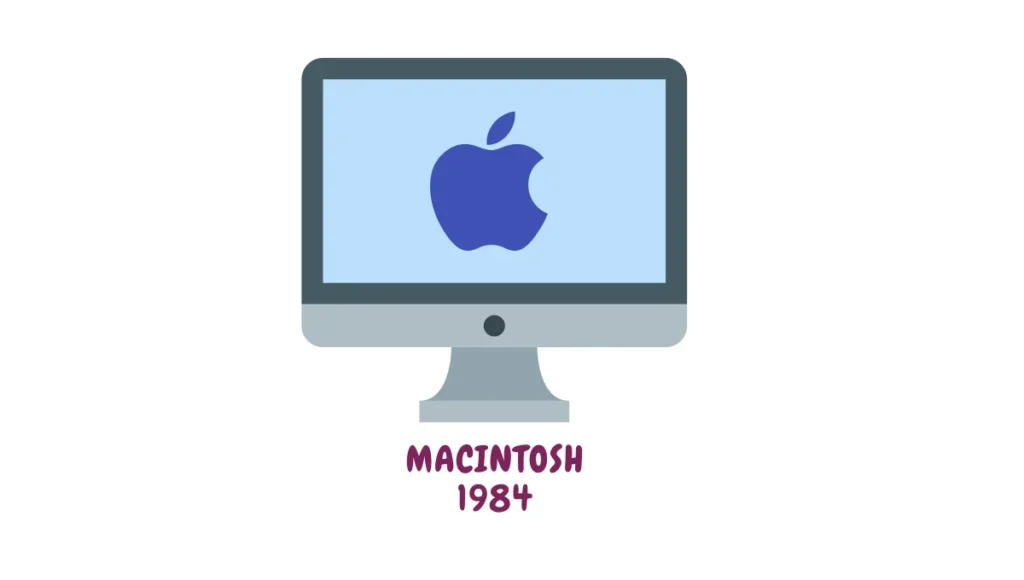
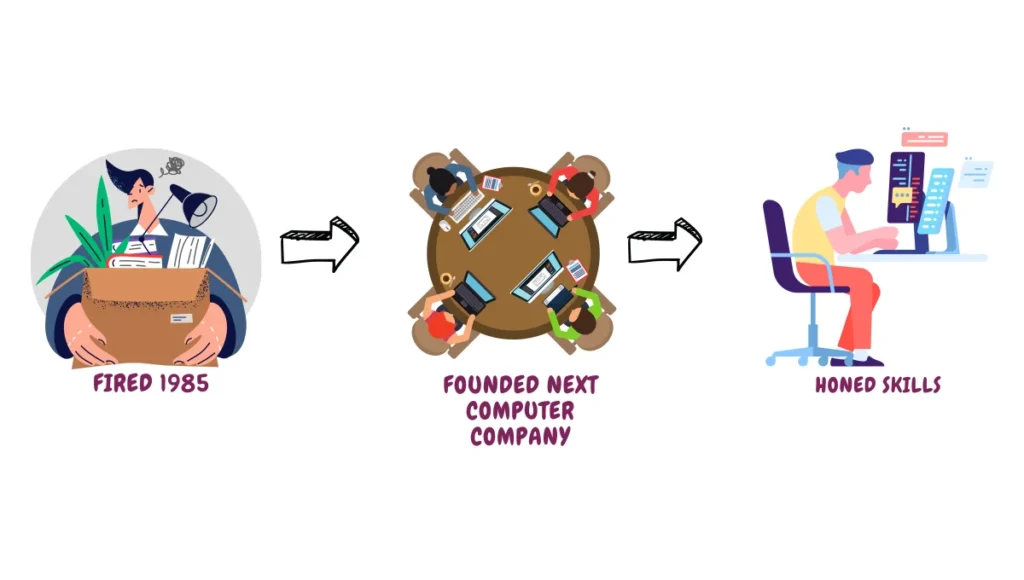
Departure and Return
In 1985, due to internal conflicts and power struggles within the company, Jobs was forced out of Apple. Undeterred, he went on to found NeXT Computer, a company focused on creating advanced workstations for the higher education and business markets. While NeXT faced challenges, it was during this time that Jobs honed his skills as a visionary leader and developed a laser focus on creating products that seamlessly blended technology and design.
Rebirth of Apple
In an unexpected twist, Apple acquired NeXT Computer in 1997, which led to Steve Jobs returning to the company he had co-founded. This momentous event marked a significant shift for Apple, as Jobs brought back a renewed sense of direction and an unwavering dedication to delivering exceptional products. Under his leadership, Apple underwent a dramatic transformation and began a series of groundbreaking product releases.
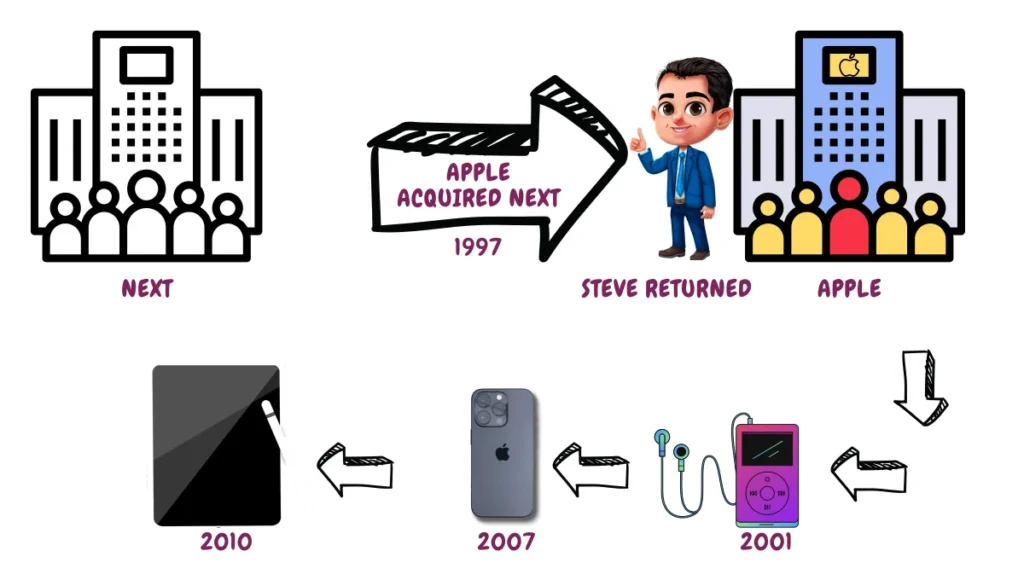
The iPod, iPhone, and iPad
In the year 2001, Apple unveiled the iPod, a portable music player that transformed the entire music-listening experience. The iPod’s sleek design, intuitive user interface, and seamless integration with iTunes made it an instant hit. Following this achievement, Steve Jobs introduced the iPhone in 2007, a revolutionary device that not only reshaped the landscape of the smartphone industry but also revolutionized our methods of communication, productivity, and entertainment.
Continuing its streak of innovation, Apple unveiled the iPad in 2010, creating a new category of portable computing devices. The iPad’s combination of power, versatility, and simplicity captivated the world, further solidifying Apple’s position as a technology leader.
Legacy and Impact
Steve Jobs’ impact extended far beyond the realm of technology. His persistent pursuit of perfection, his emphasis on simplicity and elegance, and his unwavering belief in the power of design revolutionized not only the tech industry but also various other industries. Job’s influence can be seen in the way we interact with devices, the way we consume media, and even the way we approach entrepreneurship.
Beyond his professional accomplishments, Jobs’ personal journey also serves as an inspiration. He faced numerous challenges and setbacks throughout his life, but he never let them define him. His ability to bounce back from failure, his unwavering focus on his vision, and his unyielding passion for his work continue to inspire aspiring entrepreneurs and innovators around the world.

Remembering a Visionary
Tragically, Steve Jobs’ journey came to an untimely end on October 5, 2011, when he left us at the age of 56. However, his legacy lives on. The impact of his ideas, his products, and his philosophy continues to shape the world we live in today. From the sleek designs of Apple devices to the transformative power of technology, Steve Jobs’ vision remains a guiding light for those who dare to think differently and strive for greatness.
The Meeting with Neem Karoli Baba: A Transformative Encounter:

Other than the astounding achievements and entrepreneurial brilliance, there is a lesser-known but profound chapter in Steve Jobs’ life that played a pivotal role in shaping his outlook. During his spiritual quest in the 1970s, Jobs embarked on a journey to India in search of enlightenment. It was there that he had a life-changing encounter with the renowned spiritual guru, Neem Karoli Baba.
In the presence of Neem Karoli Baba, Steve Jobs experienced a profound sense of awakening. The teachings and wisdom imparted by the revered guru had a lasting impact on Jobs’ perspective on life, work, and the interconnectedness of all things. This encounter helped Steve Jobs realize the importance of intuition, mindfulness, and finding a deeper purpose beyond material success.
The meeting with Neem Karoli Baba influenced Jobs’ approach to innovation and creativity. He learned to trust his intuition and tap into a higher consciousness that transcended conventional thinking. This spiritual experience provided Jobs with the clarity and inspiration to infuse his work at Apple with a sense of purpose and a focus on creating products that would deeply resonate with users.
The lessons learned from Neem Karoli Baba’s teachings, combined with Jobs’ entrepreneurial acumen, gave birth to a unique blend of innovation, empathy, and spirituality that set Apple apart. Jobs understood that technology alone was not enough; it needed to be infused with humanity and a deep understanding of human needs.
This transformative encounter with Neem Karoli Baba reinforced the importance of staying connected to something larger than oneself. It reminded Jobs of the value of pursuing endeavors that not only drive financial success but also have a positive impact on the lives of individuals and society as a whole. It instilled in him the belief that business and spirituality can coexist, and that success is not solely measured by material achievements but by the positive influence one has on the world.
The lessons learned from Neem Karoli Baba became an integral part of Steve Jobs’ legacy, influencing his approach to innovation, leadership, and the pursuit of excellence. It serves as a reminder that true success goes beyond monetary gains and requires a deep understanding of the human experience.
7 Lessons Every Entrepreneur Should Learn:
Lesson 1: The Power of Vision

Steve’s vision was clear: he wanted to make technology accessible and intuitive for everyone. With this burning passion in his heart, he co-founded Apple Inc., determined to create products that would revolutionize the tech industry.
Steve Jobs had an unrivaled ability to envision the future. He saw possibilities where others saw limitations.
By embracing his relentless curiosity and thinking beyond conventional boundaries, Jobs created revolutionary products that changed our lives. As an entrepreneur, nurture your vision, dream big, and believe in your ideas, even when others doubt you. Remember, your vision can ignite a spark that transforms the world.
Lesson 2: Embracing Failure as Stepping Stones
 Failure is often seen as the antithesis of success, but Steve Jobs viewed it differently. He understood that failure is not the end but a stepping stone towards growth and improvement. Failure is not the end, it’s the beginning of a valuable learning journey.
Failure is often seen as the antithesis of success, but Steve Jobs viewed it differently. He understood that failure is not the end but a stepping stone towards growth and improvement. Failure is not the end, it’s the beginning of a valuable learning journey.
Steve Jobs encountered numerous setbacks throughout his career, including being ousted from the company he co-founded. However, he didn’t let failure define him. Instead, he embraced it, learned from it, and used it as a stepping stone towards greater success.
As an entrepreneur, you must adopt a similar mindset. Embrace failure as a valuable teacher, as it provides invaluable insights that can shape your future success, and let them fuel your determination to bounce back stronger.
Lesson 3: Simplicity: The Key to Brilliance
 In a world cluttered with complexity, Steve Jobs understood the power of simplicity. He stripped away unnecessary layers, creating elegant, intuitive designs that captivated users. As an entrepreneur, it is crucial to embrace simplicity in your business strategies and product offerings. Simplicity not only delights customers but also enhances usability and sets you apart from the competition. By distilling your ideas to their core essence, you can create experiences that captivate your audience and foster meaningful connections.
In a world cluttered with complexity, Steve Jobs understood the power of simplicity. He stripped away unnecessary layers, creating elegant, intuitive designs that captivated users. As an entrepreneur, it is crucial to embrace simplicity in your business strategies and product offerings. Simplicity not only delights customers but also enhances usability and sets you apart from the competition. By distilling your ideas to their core essence, you can create experiences that captivate your audience and foster meaningful connections.
Lesson 4: Delighting Customers with Extraordinary Experiences
 Steve Jobs had an unwavering commitment to customer satisfaction. He had an uncanny ability to understand what customers truly desired, often before they even knew it themselves. He understood that great products were not enough; they needed to be accompanied by extraordinary experiences. As an entrepreneur, prioritize understanding your customers’ needs, desires, and pain points. Create products and services that not only meet their expectations but exceed them. Go the extra mile to surprise and delight your customers, and they will become your most loyal advocates.
Steve Jobs had an unwavering commitment to customer satisfaction. He had an uncanny ability to understand what customers truly desired, often before they even knew it themselves. He understood that great products were not enough; they needed to be accompanied by extraordinary experiences. As an entrepreneur, prioritize understanding your customers’ needs, desires, and pain points. Create products and services that not only meet their expectations but exceed them. Go the extra mile to surprise and delight your customers, and they will become your most loyal advocates.
Lesson 5: Building a Dream Team
 No entrepreneur can achieve greatness alone and Steve Jobs understood this implicitly. He believed in the power of teamwork and assembling a dream team. He surrounded himself with individuals who shared his passion, complemented his skills, and pushed the boundaries of innovation. As an entrepreneur, invest in building a diverse and talented team. Nurture an environment that encourages collaboration, creativity, and growth. Together, you can achieve extraordinary things.
No entrepreneur can achieve greatness alone and Steve Jobs understood this implicitly. He believed in the power of teamwork and assembling a dream team. He surrounded himself with individuals who shared his passion, complemented his skills, and pushed the boundaries of innovation. As an entrepreneur, invest in building a diverse and talented team. Nurture an environment that encourages collaboration, creativity, and growth. Together, you can achieve extraordinary things.
Lesson 6: Thinking Different: Unleashing Creative Genius
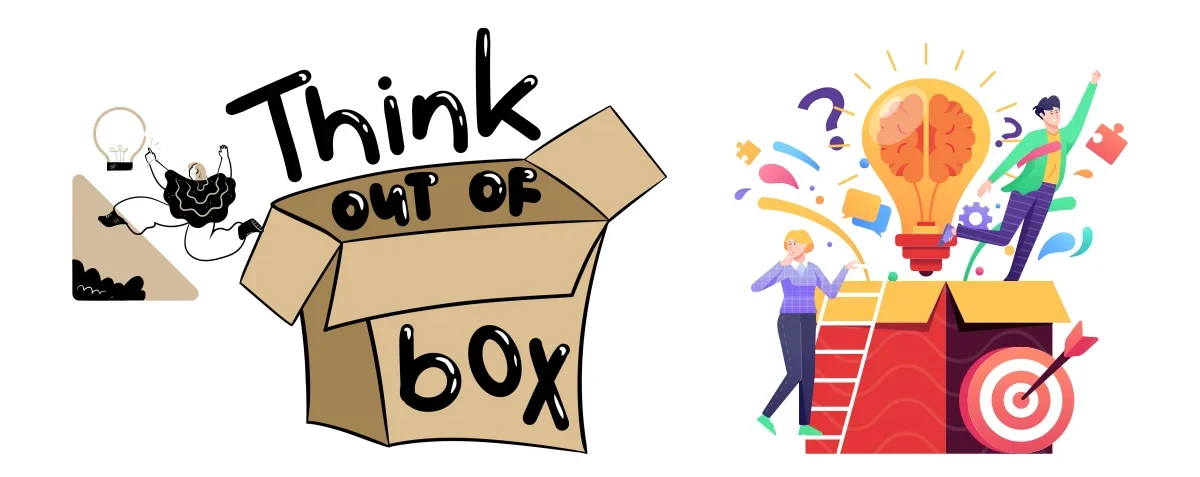 “Think Different” was more than just an advertising slogan for Apple; it was a core philosophy that Steve Jobs lived and breathed. He encouraged individuals to challenge the status quo, to break free from conventional thinking, and to embrace innovation. As an entrepreneur, thinking differently is your superpower. It allows you to spot opportunities that others overlook, to pioneer new paths in your industry, and to create disruptive solutions that change the game. Embrace your unique perspective, nurture your creativity, and let your imagination soar. By thinking differently, you can carve out your own niche and leave an indelible mark on the world.
“Think Different” was more than just an advertising slogan for Apple; it was a core philosophy that Steve Jobs lived and breathed. He encouraged individuals to challenge the status quo, to break free from conventional thinking, and to embrace innovation. As an entrepreneur, thinking differently is your superpower. It allows you to spot opportunities that others overlook, to pioneer new paths in your industry, and to create disruptive solutions that change the game. Embrace your unique perspective, nurture your creativity, and let your imagination soar. By thinking differently, you can carve out your own niche and leave an indelible mark on the world.
Break free from conventional thinking, explore uncharted territories, and dare to be different. It is within these moments of creativity and innovation that game-changing ideas are born.
Lesson 7: Staying Hungry, Staying Foolish
 Steve Jobs concluded his iconic Stanford commencement speech with the powerful message, “Stay hungry, stay foolish.” It is a reminder to never lose your hunger for knowledge, growth, and new experiences. Embrace a childlike curiosity, be open to learning from anyone and anywhere, and never let success make you complacent. Stay hungry for success, and never be afraid to take risks, even if others consider them foolish. It is in these moments of boldness that greatness is achieved.
Steve Jobs concluded his iconic Stanford commencement speech with the powerful message, “Stay hungry, stay foolish.” It is a reminder to never lose your hunger for knowledge, growth, and new experiences. Embrace a childlike curiosity, be open to learning from anyone and anywhere, and never let success make you complacent. Stay hungry for success, and never be afraid to take risks, even if others consider them foolish. It is in these moments of boldness that greatness is achieved.
Conclusion
Steve Jobs’ journey from a curious child tinkering with electronics to the co-founder of Apple and a visionary leader is a testament to the power of passion, perseverance, and a relentless pursuit of excellence. His ability to merge technology and design, his unwavering focus on the user experience, and his innate understanding of what people truly wanted to set him apart as a visionary and a true game-changer.
Today, as we navigate a world shaped by the innovations he brought forth, we remember Steve Jobs as an icon, a visionary, and an inspiration. His story reminds us that with a bold vision, unwavering dedication, and a commitment to creating extraordinary experiences, we too can leave a lasting impact on the world. Steve Jobs’ legacy continues to inspire generations of entrepreneurs, innovators, and dreamers to chase their dreams and change the world.
The legacy of Steve Jobs is one of inspiration, innovation, and entrepreneurial brilliance. His remarkable journey acts as a guiding map for aspiring entrepreneurs aiming to leave their own impactful legacy on the world. Through his life, he taught us the power of vision, the importance of embracing failure, the beauty of simplicity, the value of extraordinary experiences, the strength of a dream team, the impact of thinking differently, and the significance of staying hungry and staying foolish. Let Steve Jobs’ legacy be your guiding light as you embark on your entrepreneurial journey, and may it ignite the fire within you to create your own remarkable path to success.

FAQs
How did Steve Jobs revolutionize the tech industry?
Steve Jobs revolutionized the tech industry through his visionary products and relentless pursuit of excellence. His innovations, such as the iPhone and Macintosh, transformed the way we interact with technology.
How can entrepreneurs embrace failure and use it to their advantage?
Entrepreneurs should view failure as a stepping stone to success. Embrace failure as a valuable learning experience, analyze mistakes, and use them as opportunities for growth and improvement.
Why is simplicity important in entrepreneurship?
Simplicity enhances user experiences, improves product adoption, and fosters clarity and understanding. By prioritizing simplicity, entrepreneurs can create intuitive and compelling offerings.
How can entrepreneurs build a dream team?
Entrepreneurs can build a dream team by selecting individuals who share their vision, possess diverse skills, and contribute to a collaborative and innovative environment.
What does it mean to “think different” as an entrepreneur?
“Thinking different” means challenging the status quo, exploring unconventional ideas, and embracing innovation. It involves pushing boundaries and finding unique solutions to problems.
How did Steve Jobs’ meeting with Neem Karoli Baba influence his approach to entrepreneurship?
Steve Jobs’ meeting with Neem Karoli Baba had a profound impact on his outlook and approach to entrepreneurship. It reinforced the importance of intuition, mindfulness, and finding a deeper purpose beyond material success. Jobs learned to trust his instincts and tap into a higher consciousness, infusing his work with a sense of purpose and empathy.
Who was Neem Karoli Baba?
Neem Karoli Baba, also known as Maharaj-ji, was a revered spiritual guru in India. He was known for his profound wisdom, simplicity, and ability to transform the lives of those who came in contact with him.
How did the meeting with Neem Karoli Baba influence Steve Jobs’ approach to innovation?
The meeting with Neem Karoli Baba reinforced the importance of infusing technology with humanity and understanding the deeper needs of individuals. It guided Jobs to create products that deeply resonated with users and had a positive impact on their lives.
Did Steve Jobs incorporate spirituality into his business practices?
Yes, Steve Jobs believed that business and spirituality could coexist. He integrated principles of mindfulness, intuition, and finding purpose into his leadership style and the culture of Apple.
How did Steve Jobs’ spiritual quest impact his overall life and work?
Steve Jobs’ spiritual quest provided him with a sense of clarity, purpose, and inspiration. It shaped his outlook on life, work, and the interconnectedness of all things. The lessons learned influenced his approach to innovation, leadership, and the pursuit of excellence.



